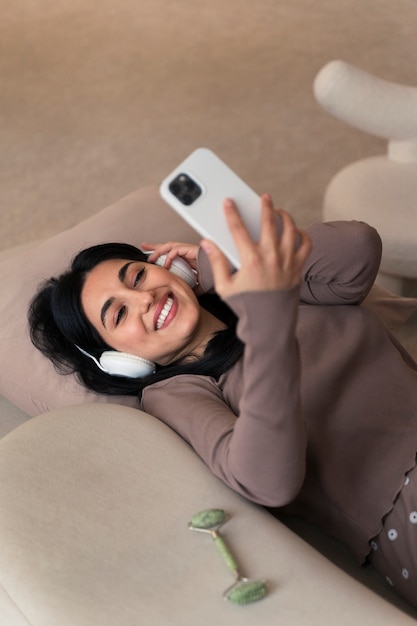

I’ve written a series of six posts explaining how early Buddhist teachings can help us break free from social media addiction. These teachings come from the Vitakkasanthana Sutta, which outlines five strategies for overcoming persistent thoughts and urges.
One important point is that the Buddha advises using these tools in sequence. If redirecting your mind to positive thoughts doesn’t work, consider focusing on the drawbacks of addiction. If that doesn’t help, move to the next tool: “ignore and forget” whatever you’re obsessed with. That’s what we’ll explore today.
The guidance for this tool is quite simple: If bad, unskillful thoughts related to desire, hate, and delusion keep arising, you should ignore and forget them. This might sound easier said than done, but it’s actually practical advice for reducing temptation.
Let’s look at this in two areas. First, in our external activities, we can literally ignore and look away from social media by changing our habits. Second, we’ll examine internal activities and how we relate to our experiences. A small shift in how we notice what’s happening around us can significantly improve our wellbeing.
Here are some practical steps for managing your attention:
– If you’re trying to lose weight and have trouble with potato chips, don’t keep them in the house. Similarly, to curb social media addiction, move your social media apps to the second or third screen of your phone. This makes accessing them slightly more work.
– Turn off the notifications and red badges on these apps, as they are designed to grab your attention. This will help you check them only when you decide to, rather than when the app alerts you.
– Keep your phone out of sight at different times. Avoid placing it at your bedside, as this makes it the first thing you reach for in the morning. Instead, charge your phone in a different room and use an alarm clock for waking up.
If you charge your phone elsewhere, you might find yourself meditating or reading a book first thing in the morning, which is a healthier way to start the day. Reading books can help your mind become more focused, unlike the short posts and articles we often read online.
Creating phone-free times is beneficial too. For instance, mute your phone or put it out of sight during meals or social gatherings. Some people even stack their phones in the middle of the table at restaurants, and whoever touches their phone first has to pay the bill.
Meditation retreats offer another excellent opportunity to disconnect. On some retreats, you hand in your phone for the duration. If that’s not required, consider leaving your phone in your car or turning it off. You could even seal it in an envelope with an encouraging message on it.
These are practical steps to help you “look away” from your phones and create a more addiction-free environment. Beyond these external actions, there’s internal work we can do to manage our impulses better.
Our normal way of seeing is like a flashlight, narrowly focused on what’s in front of us. But there’s another way of seeing where we’re aware of the whole visual field, like a lamp that illuminates everything. This relaxed, open gaze can influence how we perceive our internal experiences as well.
In meditation, when our gaze is tight and focused, our attention is also narrow. This makes us more likely to become absorbed in distracting thoughts. Conversely, when we maintain a soft gaze, we can be aware of many sensations, making our mind more nourished and less likely to get lost in thought.
This approach helps us ignore and forget compelling thoughts and urges. When you get an urge to check social media, using an open gaze can make it easier to let the thought pass without acting on it. This is similar to “urge surfing,” where you observe an urge until it peaks and fades away.
By creating barriers between ourselves and our phones, adopting an open gaze, and surfing our urges, we can gradually break free from social media addiction. These tools allow us to ignore and forget the thoughts and impulses that keep us hooked, helping us cultivate healthier habits and a greater sense of freedom.